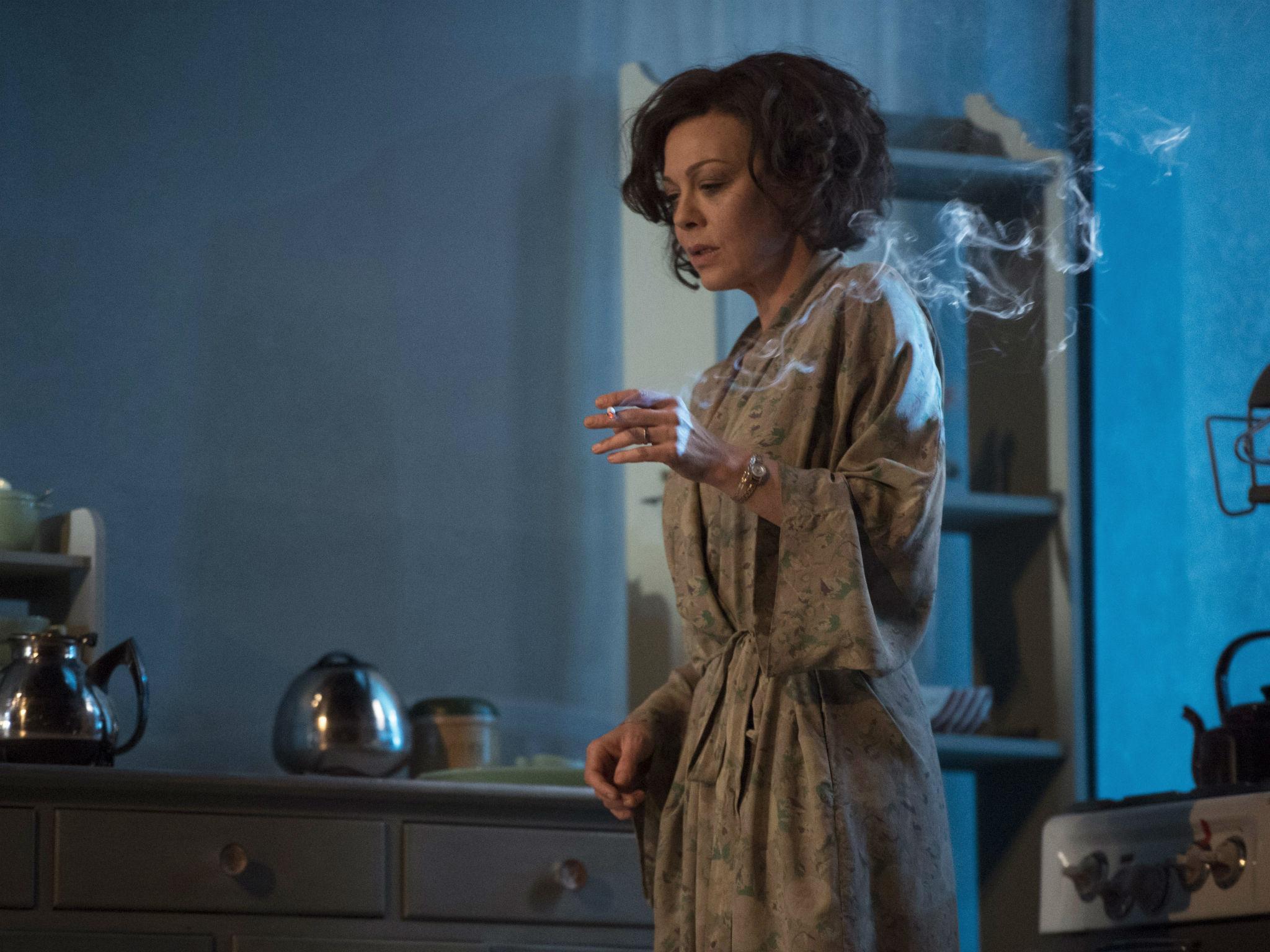The Deep Blue Sea, Lyttelton, National Theatre, review: 'McCrory gives a commanding portrayal of a woman exhausted by unreciprocated desire'
After winning awards for their collaboration on Medea, Helen McCrory and director Carrie Cracknell resume their partnership in this revival of Terence Rattigan's 1952 masterpiece

Helen McCrory and director Carrie Cracknell won awards for their striking collaboration on Medea. They resume their partnership, with more mixed results, in this revival of Terence Rattigan's 1952 masterpiece.
You need an actress with the range to tackle the tragic extremities of Euripides and Racine if you seek to sound the depths of Hester Collyer, one of the great female roles of the postwar repertoire. The play may unfold in a dingy Ladbroke Grove rooming house, but it focuses on a woman who is a Fifties equivalent of Phedre, flouting convention in her obsessive infatuation with a man who cannot match the intensity of her feelings. One-sided passion, unequal love: it's Rattigan’s abiding theme, explored here with matchless insight in a play that was inspired by the suicide of one of the playwright’s former male lovers.
It’s as she is being brought round from a botched attempt to end it all that we first see Hester, the clergyman’s daughter who has abandoned the respectability of marriage to a High Court judge in order to live in sin with the younger Freddie, an RAF hero and unemployed test pilot. McCrory gives a commanding portrayal of a woman exhausted by unreciprocated desire, alternating between flurries of desperate clinging and bleak, clear-eyed recognition that she and Freddie are death to each other. The production’s most poignant scenes, for me, however, are those between the heroine and Peter Sullivan as her estranged spouse. Hester’s old social self is stirred and her curiosity wryly affectionate: “Tell me, is David very pompous now he's Solicitor-General?” The couple’s fondness for each other is emphasised in a so-near-yet-so-far away manner. Sullivan beautifully brings out this class-blinkered man's genuine concern and his too-late, partial realisation that Hester always had more to give him than he wanted from her.
The play is humanely even-handed in showing that there tend to be two casualties in relationships where there's an imbalance of desire. Tom Burke as Freddie, the war hero floundering in civvy street, vividly suggests that the character's hard-drinking caddishness stems from baffled pain at being able to arouse a grand amour that he's too shallow to reciprocate. I’ve seen the tragic irony more movingly intimated, though, that it’s Freddie, not Hester, who is bound on a suicide mission at the end. I shan't spoil the surprise of how Hester's hard-won resolve to live is signalled here except to say that it uses gas more positively than the original ending does.
There's a healthy, half-comic appeal about this touch that I found more persuasive than some of the production’s broader adjustments. McCrory has the air of a smoky-voiced upper-class bohemian, who could make herself at home anywhere. The tension between the heroine and her reduced circumstances is, to my mind, further lessened, by Tom Scutt’s set with its translucent walls that allow us ghostly glimpses of other lives in this massive, heaped-up house to the accompaniment of ominous movie music. I can appreciate the rationale for this while feeling that it backfires in its distracting overkill.
Until 21 September; 020 7452 3000
Subscribe to Independent Premium to bookmark this article
Want to bookmark your favourite articles and stories to read or reference later? Start your Independent Premium subscription today.

Join our commenting forum
Join thought-provoking conversations, follow other Independent readers and see their replies